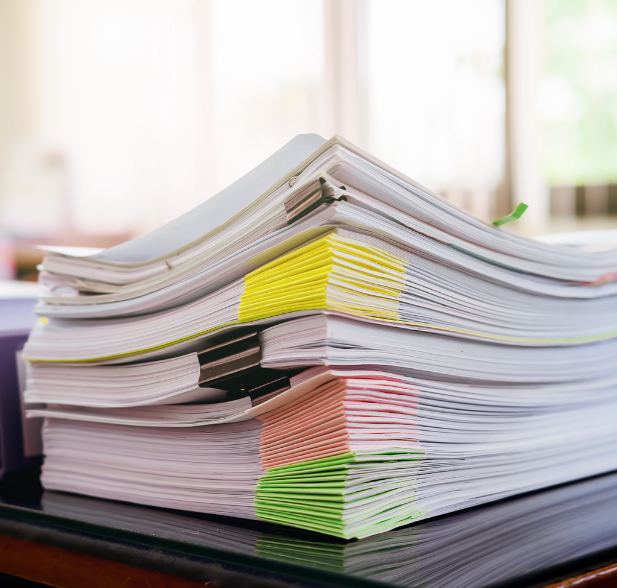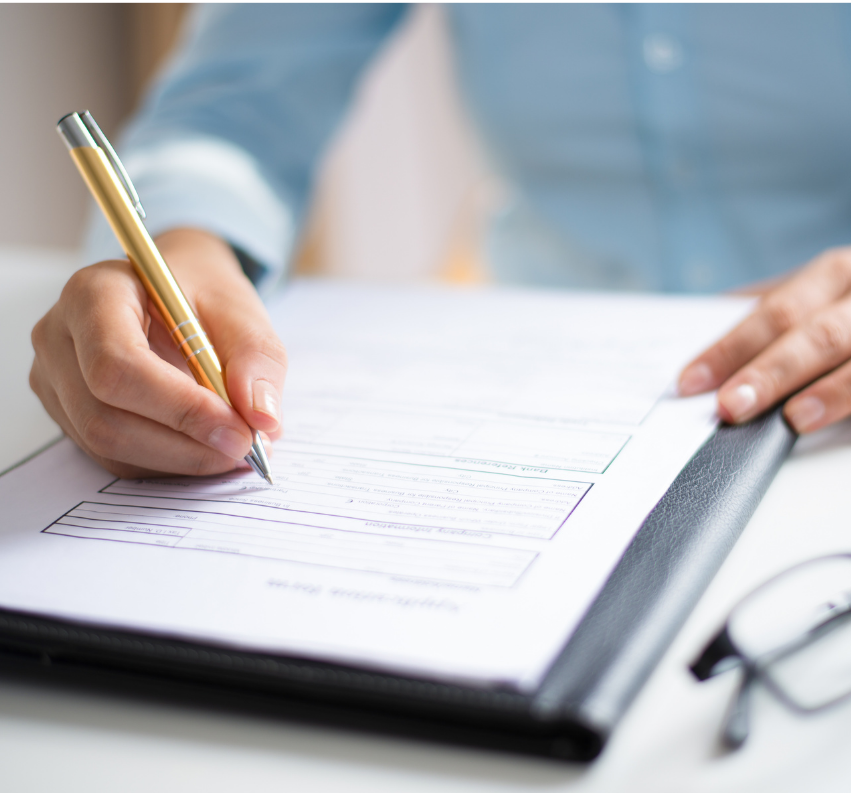The Hotel License Framework
The Hotel Licensing Framework in Singapore serves as the foundation for regulation in the hospitality industry, ensuring that all hotel operations meet the highest standards of service quality and safety. Designed to protect guest interests and uphold Singapore’s reputation as a top tourist destination, the framework mandates that all hotels operating within the city-state obtain a license before commencing business. This requirement underscores the Singaporean government’s commitment to maintaining a high-quality, reputable hospitality sector, which is crucial for the nation’s tourism appeal and economic health.
Objectives of the Hotel Licensing Framework:
- Regulate the Industry: To ensure all hotel operations adhere to strict legal, safety, and hospitality standards.
- Financial Compliance: Hotels must demonstrate financial integrity, including accurate reporting of earnings and adherence to tax regulations.
- Guest Protection: Protect guests by ensuring that all facilities meet rigorous health and safety standards.
The primary regulatory body overseeing this framework is the Singapore Hotel Licensing Board, operating under the Ministry of Trade and Industry. This board enforces the Hotels Act and other related hospitality regulations, providing the legal basis for licensing, compliance, and enforcement activities. This legislation ensures that hotel operations are transparent, facilities are well-maintained, and all hospitality practices comply with national standards.
Details on Hotel Licenses
In Singapore’s competitive and highly regulated hospitality landscape, the Hotel Licence is crucial for establishments aiming to offer lodging services. Governed by the Singapore Hotel Licensing Board, this license is required for a range of accommodations including traditional hotels, boutique inns, hostels, and serviced apartments, signifying compliance with stringent regulatory standards and ensuring guests receive quality accommodations in a safe and professional environment.
Who Requires the Hotel License
The Hotel Licence is mandatory for any establishment providing short-term accommodation with typical hospitality industry amenities and services. This includes a broad spectrum of operations, from luxury hotels to budget hostels. Each is subject to rigorous scrutiny to uphold the sector’s high standards.
Application Process and Compliance Requirements
Securing a Hotel Licence involves detailed preparation to ensure premises meet structural and operational standards. These standards include fire safety, building codes, and accessibility features. Applicants must submit a comprehensive application to the Hotel Licensing Board. This application includes business plans, proof of ownership or lease of the premises, and detailed service offerings. Rigorous inspections by government agencies follow to ensure compliance with all relevant regulations, including hygiene, cleanliness, and emergency preparedness.
Benefits of the Hotel License
Obtaining a Hotel License offers several key benefits. It establishes the establishment’s legal status to operate, which is essential for building trust with customers and business partners. It also confirms the establishment’s adherence to health, safety, and service quality standards, enhancing its reputation. Additionally, it enables hotels to tap into Singapore’s lucrative tourism market, including eligibility for promotional support from tourism boards.
Tips for Successful License Acquisition
Successful license acquisition requires comprehensive planning to ensure all aspects of the hotel’s operation meet regulatory guidelines. Attention to detail is critical for meticulously preparing all required documentation and records for submission and inspection. Engaging with experts like Fastcorp can provide invaluable insights and support throughout the application process, ensuring no detail is overlooked.
Details on Food Shop License
For hotels in Singapore offering dining services, obtaining a Food Shop Licence is important. This critical regulatory requirement ensures that establishments comply with the nation’s stringent health and safety standards. Administered by the Singapore Food Agency (SFA), the license is a hallmark of credibility and trust. It assures guests and regulators of the establishment’s commitment to food hygiene and safety.
Necessity of the Food Shop License
The Food Shop Licence is crucial for any hotel’s operational integrity in food services. It applies to various dining establishments within hotels, such as restaurants, cafes, and any venue serving food to guests. This license ensures public health and safety by adhering to stringent food hygiene and safety standards. It enhances the hotel’s reputation by guaranteeing the quality and safety of the food served. Additionally, it helps ensure compliance with Singapore’s comprehensive regulatory framework governing food service establishments.
Application and Inspection Process
The application for a Food Shop Licence is submitted to the SFA with detailed plans of the premises, a list of food handlers, their food hygiene certification, and a declaration of the food safety management system. SFA conducts a thorough inspection to ensure all hygiene and safety regulations are met before approving the licence.
Preparation and Equipment Standards
Before applying, hotels must ensure their kitchen and dining areas meet SFA’s hygiene standards. This includes having a proper layout for food preparation areas, adequate storage facilities, and appropriate waste disposal mechanisms.
Maintaining Compliance
Post-licensing, hotels must continuously maintain high standards of cleanliness and food safety. This includes regular training for food handlers and routine health inspections. Compliance with these standards secures the licence and reinforces the establishment’s dedication to providing safe, high-quality dining experiences.
Details on Public Entertainment License
In Singapore’s vibrant hospitality scene, hotels often elevate the guest experience by hosting live music, performances, and various events. To legally host these entertainments, obtaining a Public Entertainment Licence is essential. Governed by the Singapore Police Force, this licence ensures that entertainment activities within hotel premises adhere to the country’s strict regulations on public entertainment and safety standards.
Overview of the Public Entertainment License
The Public Entertainment Licence is designed for establishments looking to provide entertainment accessible to the public. This includes live bands, DJ sets, cultural performances, and events. It legalizes the provided entertainment, ensuring that activities safeguard public morals, maintain social order, and guarantee attendee safety.
Approval and Compliance
Upon review, if the application meets all regulatory requirements, the licence is granted, allowing the hotel to proceed with its entertainment offerings. Hotels must then ensure ongoing compliance with the stipulated regulations to maintain their licence. This includes regular updates and potential re-inspections to address any changes or expansions in their entertainment activities.
Application Guidelines and Procedures
Applying for a Public Entertainment Licence involves submitting an application to the Singapore Police Force. The application details the types of entertainment planned, event schedules, and performer information. It must demonstrate adherence to noise regulations, fire safety standards, and other public safety guidelines. This process often requires coordination with other regulatory bodies for inspections or additional permits.
Enhancing Guest Experience and Legal Compliance
Securing a Public Entertainment Licence ensures compliance with Singapore’s legal framework and enhances the guest experience. It allows hotels to diversify their offerings and create memorable experiences. This contributes to customer satisfaction and loyalty, showcasing the hotel’s commitment to operational excellence and safe entertainment.
Details on Liquor License
In Singapore, known for its meticulous regulatory environment, serving alcohol in hotels requires obtaining a Liquor License. This license is crucial for legal compliance in hotels that wish to offer alcoholic beverages. Governed by the Singapore Police Force, the Liquor License ensures that the sale and consumption of alcohol within hotel premises are conducted responsibly and in line with the country’s strict alcohol regulations.
Importance of the Liquor License
The Liquor Licence serves several key functions in the context of hotel operations. It ensures regulatory compliance, helping hotels adhere to the legal framework governing the sale and consumption of alcohol and avoiding potential penalties and legal issues. It enhances public safety by ensuring responsible alcohol service. Additionally, it significantly contributes to guest satisfaction by legally enabling alcohol service, which is often an essential aspect of dining and entertainment offerings in hotels.
Application and Documentation Process
The application process involves submitting detailed documentation to the Liquor Licensing Board, including business registration details, a description of the premises, and plans for managing responsible alcohol service. This documentation is submitted through the Singapore Police Force’s online portal, accompanied by the required fee.
Understanding and Preparing for the Licence
Hotels must first determine the specific type of Liquor Licence required based on their operational needs and the nature of their alcohol service. This includes understanding different license types for varying service environments and hours.
Implementing Compliance Measures and Ensuring Approval
To ensure compliance with alcohol regulations, hotels may need to implement measures such as staff training in responsible alcohol service, age verification procedures, and measures to prevent disorderly conduct. Following these steps, the application is reviewed, and if all criteria are met, the Liquor Licence is granted.
Details on Massage Establishment License
In Singapore, hotels offering spa and massage services are required to obtain a Massage Establishment Licence. This Licence, regulated by the Singapore Police Force, ensures that such establishments adhere to stringent operational and health standards, safeguarding both the welfare of guests and the reputation of the hospitality sector. The necessity of this Licence underscores Singapore’s commitment to maintaining high service quality and health safety standards across all service sectors, including the wellness and spa industry within hotels.
Explanation of the Massage Establishment Licence
The Massage Establishment License is designed for businesses providing massage services, whether as standalone spas or as part of a hotel’s amenities. This license validates the establishment’s compliance with specific regulatory standards. These include hygiene practices, therapist qualifications, and operational protocols. It ensures that massage services are provided in a professional, ethical, and health-conscious manner.
Application Process
The application for the Massage Establishment License requires submitting detailed documentation to the Singapore Police Force. This includes business registration information, spa area floor plans, and therapist profiles. The thorough review process ensures that only establishments meeting all regulatory requirements receive approval.
Criteria for Licensure
Securing a Massage Establishment Licence involves demonstrating adherence to operational standards such as cleanliness, equipment maintenance, and safety and privacy guidelines for guests. Establishments must comply with health and safety regulations, ensure all massage therapists are properly trained and certified, and implement procedures for managing health risks, including infectious disease prevention.
Enhancing Service Quality and Compliance
Obtaining the Massage Establishment License ensures compliance with legal and health standards. It also enhances the establishment’s credibility and appeal to guests seeking wellness services. This license is vital for hotels in Singapore that wish to offer massage and spa services, as it boosts the establishment’s reputation and guests’ trust.
Details on Signboard License
In the meticulously planned cityscape of Singapore, maintaining the urban aesthetic and ensuring safety standards are paramount, especially in the bustling hospitality sector. For hotels, the exterior signage not only serves as a branding and navigational tool but also contributes to the city’s visual harmony. Hence, acquiring a Signboard Licence becomes an essential step for hotels looking to install or display external signboards. This Licence, regulated by the Building and Construction Authority (BCA) in collaboration with other local authorities, ensures that all outdoor signage adheres to specific design, size, and placement guidelines, maintaining the aesthetic integrity and safety of Singapore’s urban landscape.
Necessity of the Signboard License
The Signboard License ensures that hotels’ external signages meet predefined standards that prevent visual clutter and ensure structural safety, protecting both pedestrians and property. It’s a demonstration of the hotel’s commitment to upholding the city’s high standards for urban design and public safety.
Compliance with Urban Aesthetic and Safety Standards
The design and placement of the signboard must align with guidelines that ensure it complements the surrounding urban environment. This includes considerations for size, lighting, and colour scheme to ensure it fits seamlessly within the city’s aesthetic. Additionally, hotels must demonstrate that the signboard will be installed securely and safely, posing no risk to pedestrians or nearby structures. This may require an assessment from a qualified engineer to certify the signboard’s structural integrity.
Preparing and Submitting Plans
Hotels must prepare detailed plans of the proposed signboard, including specifications such as dimensions, materials, and illumination. These plans are submitted to the BCA for review, ensuring that the proposed signage aligns with the city’s urban planning and aesthetic guidelines.
Securing and Maintaining the License
Securing a Signboard License is a reflection of a hotel’s alignment with Singapore’s vision for a safe, aesthetically pleasing urban environment. Once approved, hotels must adhere to the specified guidelines and maintain their signage in good condition to comply continuously with the BCA’s standards.
Navigating the Application Process
Navigating the application process for a Hotel Licence in Singapore requires a comprehensive understanding of the regulatory requirements and potential challenges. Fastcorp, leveraging its expertise in the hospitality regulatory landscape, provides a streamlined guide to assist hotels in applying for the necessary licences, ensuring a smooth journey from application to approval. This support helps hotels meet all legal standards and align with Singapore’s strict hospitality regulations, facilitating their successful operation within the city-state.
Step 1: Determine the licence type
Begin by identifying the specific license that aligns with your hotel’s operational needs, whether it’s a General Hotel License, Boutique Hotel License, or a Service Apartment License, depending on the nature and scale of your hospitality services.
Step 2: Prepare Documentation
Gather all necessary documentation for your hotel license application, including business registration details, financial statements, and proof of compliance with hospitality regulations. For hotel operators, this also includes ensuring that building codes, health and safety standards, and other regulatory requirements specific to the hospitality industry are documented.
Step 3: Submit Application
Applications for hotel licenses are typically submitted online through the relevant Singaporean authority’s portal, such as the Singapore Hotel Licensing Board. Complete the application form accurately, attaching all required documentation, including details of ownership, business operation plans, and compliance with safety and health standards.
Step 4: Pay Fees
Pay the applicable application fee, which varies by trade license type. This fee is non-refundable, so ensure your application is complete and accurate before submission.
Step 5: Await Evaluation
The relevant authority, such as the Singapore Hotel Licensing Board, will review your hotel license application, which may include an inspection of your hotel premises. Be prepared to provide additional information if requested and ensure that all aspects of your operation, from guest safety to fire regulations, are in compliance with local standards.
Essential Tips for Successful License Application

Ensure Eligibility
Before you apply, thoroughly verify that your business meets all the specific eligibility criteria required for the type of license you are applying for. This comprehensive review helps prevent potential rejections that could arise from non-compliance with the licensing requirements.

Complete Documentation
Incomplete documentation often causes application delays or rejections. Ensure all required documents are accurately completed, double-checked for correctness, and attached as specified in the application guidelines. Creating a checklist can help ensure no documents are missed.

Understand Financial Requirements
Be well-informed about all financial obligations associated with the license, including any security deposits, minimum paid-up capital requirements, and other monetary commitments. Understanding these financial aspects in advance will help ensure that your business is adequately prepared and compliant with financial regulations.

Anticipate Evaluation
Time
Licensing evaluations can be time-consuming, often taking several weeks or even months. It’s important to plan accordingly and not make any critical business decisions or commitments based on assumed approval timelines. Having a realistic timeline will help manage expectations and reduce potential disruptions to your business operations.

Seek Professional Advice
If the licensing process seems complex or if you’re unsure about certain requirements, it’s wise to seek advice from professionals who specialise in licensing applications. Consultants or legal advisors can provide valuable insights and assistance, increasing the likelihood of a successful application.

Stay Updated on
Regulatory Changes
Licensing regulations can change. Keeping abreast of any updates or changes in legislation that affect your license is crucial. This proactive approach can prevent compliance issues and ensure your business operations remain uninterrupted.
Navigating Compliance and Best Practices for License Applications
Compliance with regulatory requirements is paramount for hotel license holders in Singapore, ensuring the integrity and sustainability of the hospitality industry. Fastcorp emphasizes the importance of adhering to these standards, not only to fulfill legal obligations but also to maintain the trust and confidence of guests. Understanding and implementing best practices are crucial steps in upholding the reputation and quality of hotel services.
Key Compliance Requirements
Financial Stability
Maintaining the required level of paid-up capital and security deposits to ensure financial resilience.
Accurate Representation of Services
Ensuring that all advertisements and representations of hotel services and amenities are truthful and not misleading.
Consumer Protection
Implementing clear procedures for handling bookings, cancellations, and refunds to protect consumers’ interests.
Data Protection
Adhering to Singapore’s Personal Data Protection Act (PDPA) by safeguarding customers’ personal information and ensuring privacy.
Best Practices
Regular Training
Providing continuous training for staff on regulatory updates, customer service excellence, and ethical business practices.
Quality Assurance
Implementing regular audits and feedback mechanisms to monitor service quality and customer satisfaction.
Transparent Communication
Maintaining open and honest communication with customers regarding terms of service, pricing, and any changes to bookings or itineraries.
Ethical Marketing
Ensuring that all marketing materials accurately reflect the services offered, avoiding exaggerated claims or deceptive practices.
Navigating the intricate landscape of Singapore’s hospitality industry demands a comprehensive understanding of the various Licenses required for operation. From the foundational Hotel Licence to specific permits such as the Food Shop, Public Entertainment, Liquor, Massage Establishment, and Signboard Licenses, each plays a vital role in ensuring compliance with regulatory standards while enhancing the overall guest experience. These Licenses collectively uphold the quality, safety, and integrity of the hospitality services offered, contributing to Singapore’s reputation as a premier global destination.
Fastcorp emerges as an indispensable ally for hotel owners and operators facing the complexities of the licensing process. With our in-depth knowledge and experience, we guide our clients through each step, ensuring not only adherence to regulatory requirements but also positioning them for success in the competitive landscape of Singapore’s hospitality sector. We encourage businesses to leverage Fastcorp’s expertise, unlocking their full potential and securing a distinct advantage in delivering exceptional hospitality experiences.



